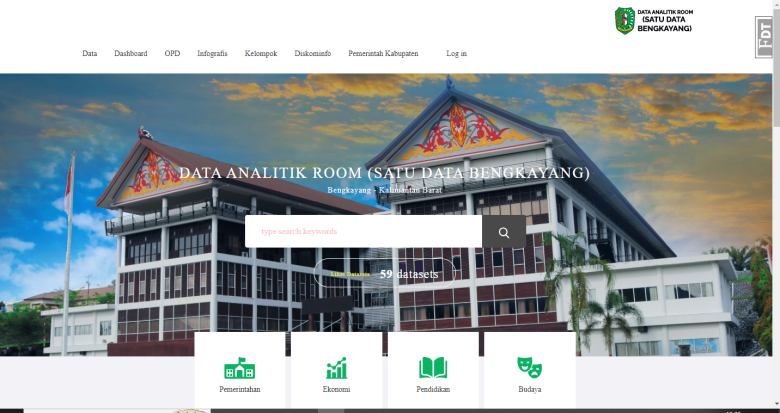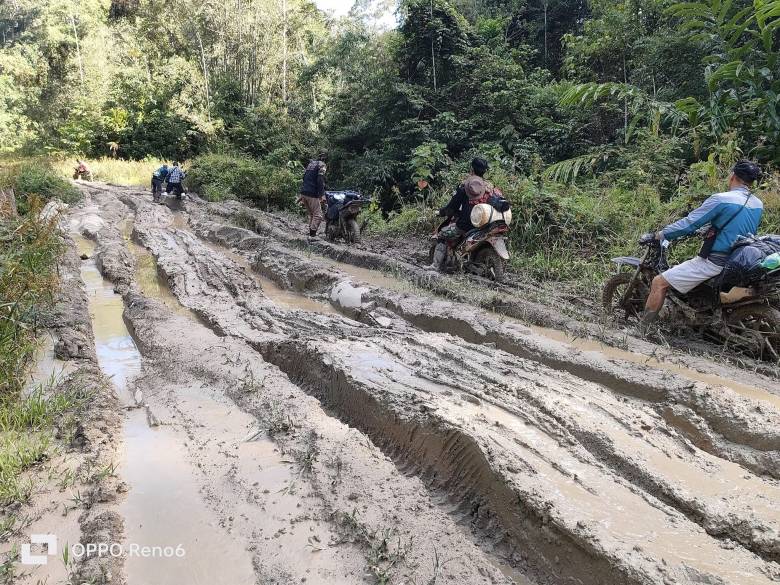Database Management System within Integrated Server, The Role and Significance of Data Science in the Enhancement of the Information System of Local Government in Bengkayang Regency.

In the fast-moving digital world, data management becomes one of the vital components in government organization activities. Bengkayang Regency is developing into a developing region that needs to adapt to technology for the delivery of public services. Effective pathways include management in databases within an integrated server. The application of data science cannot be negated in solving various complex issues, merely relying on data integration.
Accordingly, there are a lot of problems that can arise with dispersed data systems across different government departments. Major problems include data redundancy: there is a huge wastage of resources if the same data is stored in more than one place, often leading to inconsistencies. In addition, it is much easier to breach the security of dispersed systems, therefore making them harder to manage and leaving them prone to greater damages from cyber-attacks. Not least, trying to keep up separate systems for each department in terms of maintenance and upgrading is very time-consuming and costly.
These are just some of the problems that can be solved by managing databases in an integrated server for consistency, cost efficiency, and improved security. One can easily have access to and manage data from the various departments through a centralized system. However, having good management of data is not enough. There is a need to maximize the use of such data through the application of data science.
Data science in local government acts as the junction of statistical techniques, data analysis, and machine learning. So, in this setting, the field of data science will help the government make predictions related to demographic trends or economic development that can be used for more proactive planning. Furthermore, it will also help refine the process of public services. For instance, in the case of data for queues at government administrative services, one would understand when peaks are most likely to occur and be in a position to redesign queuing systems.
Moreover, data science is capable of handling risk management more effectively, be it prediction of probable security threats or vulnerabilities to natural disasters. The government can take more effective precautionary measures by analyzing historic data and simulation analysis. Data science also facilitates personalization of services, which means tailoring them to the needs of each citizen; examples include welfare programs and education.
Some of the concrete problems that can be solved using data science are management of traffic and transportation; in this regard, machine learning models will predict congestion and optimize traffic control. In public health, data science can help in health trend analysis—like outbreaks of certain diseases—designing more effective prevention programs. Budget monitoring and corruption prevention: financial data analysis for the detection of suspicious spending patterns, reducing potential corruption.
Therefore, database management across an integrated server and the utilization of data science are strategic steps that the Local Government of Bengkayang Regency may undertake. This approach not only enhances operational efficiency but also empowers the government to enhance services in light of the needs of the community. It is in this light that embracing this technology will better place the government in facing future challenges by adopting data-driven strategies that ensure more sustainable and inclusive development.
This article was written by Azriel Christian Nurcahyo, a lecturer from Institut Shanti Bhuana in Bengkayang who is currently pursuing further studies as a PhD student in Computing at UTS Sibu Sarawak (University of Technology Sarawak), and by two Computer Engineering lecturers from the Institute of Technology Keling Kumang Sekadau, Heni Ermewangningsih and Fransiska Elly Renni Susanti, as a form of Community Service.


.png)
